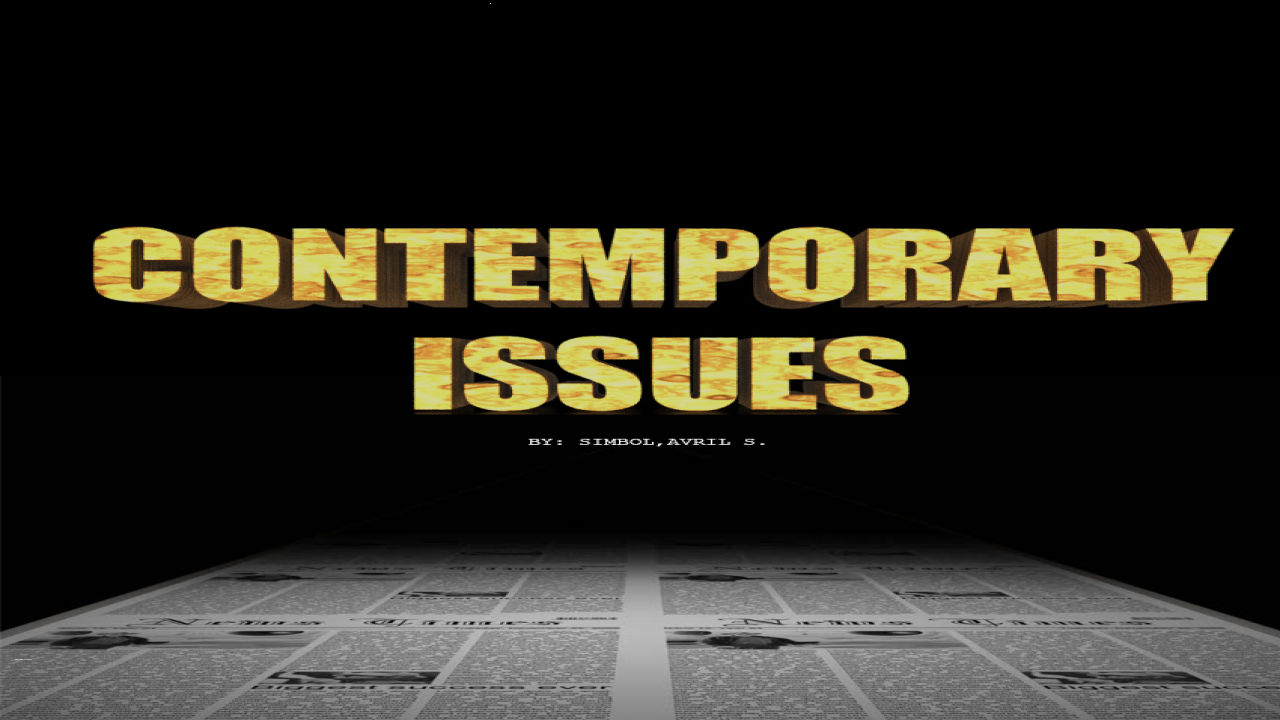Contemporary Issues
Contemporary issues refer to the current events and problems that are facing the society today. These issues are diverse and can range from social, economic, political, and environmental issues.
History of Contemporary Issues
Contemporary issues have been a part of human society since the beginning of civilization. However, the nature of these issues has changed over time, with new challenges emerging as societies evolve. The modern era has been characterized by rapid technological advancements, globalization, and increasing awareness of environmental and social issues.
Types of Contemporary Issues
Contemporary issues can be broadly categorized into the following types:
- Social issues: This refers to issues related to social inequality, discrimination, and access to basic needs such as healthcare, education, and housing.
- Economic issues: This refers to issues related to economic growth, income inequality, and unemployment.
- Political issues: This refers to issues related to government policies, political corruption, and civil rights.
- Environmental issues: This refers to issues related to climate change, pollution, and the depletion of natural resources.
Examples of Contemporary Issues
- Social issues: The #MeToo movement, which has brought attention to sexual harassment and assault in the workplace, as well as the Black Lives Matter movement, which seeks to address systemic racism and police brutality.
- Economic issues: The increasing income inequality in many countries, with the wealthiest individuals and corporations amassing more wealth while many others struggle to make ends meet.
- Political issues: The ongoing debate over immigration policies, with many countries grappling with how to balance the needs of immigrants with the concerns of their citizens.
- Environmental issues: The growing concern over climate change, with increasing evidence of its impacts on ecosystems and human societies, as well as the depletion of natural resources such as fresh water and fossil fuels.
Issues Posed by Contemporary Issues
Contemporary issues pose significant challenges for the society, including:
- Complexity: Contemporary issues are often complex and multifaceted, requiring a nuanced understanding of the underlying factors and careful consideration of potential solutions.
- Polarization: Many contemporary issues are highly divisive, with different groups holding vastly different perspectives and values.
- Urgency: Many contemporary issues require urgent action, and the consequences of inaction can be severe.
Solutions to Contemporary Issues
Solving contemporary issues requires a multifaceted approach that involves individual actions, government policies, and international cooperation. Here are some potential solutions:
- Promote education and awareness: This can be achieved through measures such as promoting education and awareness campaigns that provide accurate information and promote critical thinking.
- Address social inequality: This can be achieved through measures such as promoting social safety nets, promoting equal access to healthcare and education, and promoting diversity and inclusion.
- Address economic inequality: This can be achieved through measures such as promoting progressive taxation, promoting the minimum wage, and promoting job training and education.
- Address political corruption: This can be achieved through measures such as promoting transparency and accountability, promoting public participation in decision-making, and promoting political reform.
- Address environmental degradation: This can be achieved through measures such as promoting sustainable land use practices, promoting the use of clean technologies, and promoting the protection of critical ecosystems.


